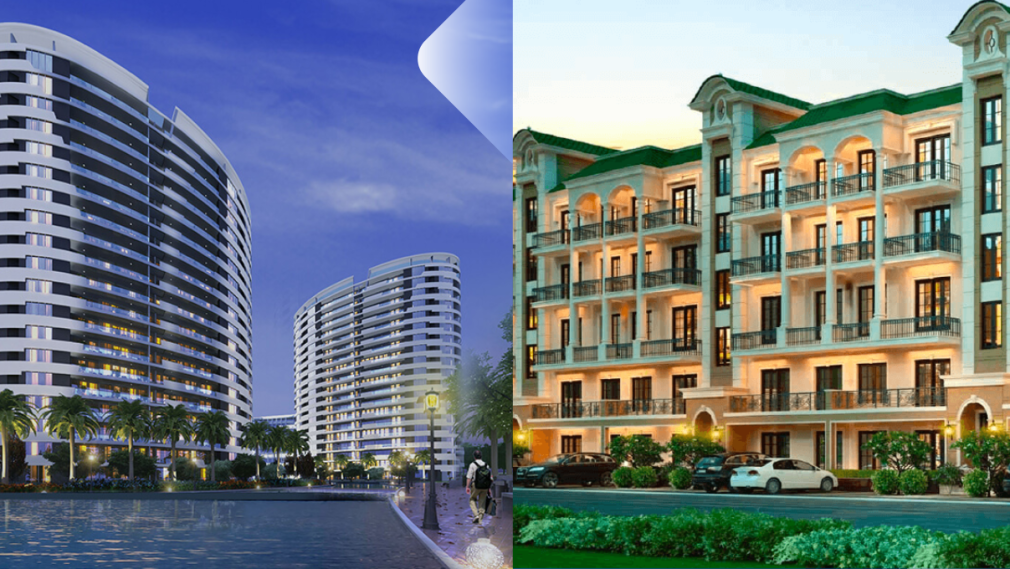Investing in a second home in India is a significant decision, especially for Non-Resident Indians (NRIs). Whether it’s for personal use, rental income, or future retirement, a second home offers both emotional and financial benefits. However, buying a second property requires careful planning and consideration, especially when you’re living abroad.
In this blog, we’ll discuss what you should look for when buying a second home in India. Whether you’re an NRI looking for investment opportunities or simply a homebuyer planning for the future, this guide will provide you with the essential factors to consider before making your purchase.
Top 6 Things to Look for When Buying a Second Home in India:
1. Purpose of the Second Home
Before diving into the property market, it’s crucial to define the purpose of your second home. Are you buying it for personal use during vacations, as a rental investment, or as a retirement home? Your purpose will dictate the type of property you should look for and the location.
- Vacation Home: If the second home is for vacations, consider properties in scenic locations like hill stations (Shimla, Ooty) or coastal areas (Goa, Kerala).
- Rental Investment: If you’re planning to rent out the property, choose a location in high-demand rental markets such as Delhi NCR, Mumbai, or Bangalore, where rental yields are strong.
- Retirement Home: If your goal is to retire in the home, consider quieter locations with good healthcare facilities and a peaceful environment like Chandigarh, Pune, or Mysore.
Understanding the purpose will help you make informed decisions about the type, location, and size of the property.
2. Location is Key
When buying a second home, the location is one of the most important factors to consider. A well-chosen location will not only serve your needs but will also appreciate in value over time.
What to Consider:
- Proximity to Amenities: Look for properties that are close to essential amenities like markets, hospitals, schools, and transport hubs. For rental properties, proximity to corporate offices or business centers will increase tenant demand.
- Development Potential: Areas with ongoing or planned infrastructure projects, such as new highways or metro extensions, often see faster property appreciation. Research upcoming developments in the area.
- Safety and Security: For NRIs, it’s important to invest in locations with good security. Gated communities and properties with 24/7 security services provide peace of mind.
- Climate and Environment: If the property is meant for personal use or retirement, consider the climate. A pleasant year-round climate will make your second home more enjoyable.
Areas like Mumbai, Pune, Bangalore, and Chennai offer both investment potential and lifestyle benefits, making them top choices for NRIs.
3. Builder Reputation and Property Quality
The next crucial factor is the reputation of the builder. Whether you’re buying a new home or a resale property, it’s important to verify the builder’s track record in delivering quality projects.
What to Check:
- Previous Projects: Research the builder’s past projects and check if they were delivered on time and maintained the promised quality.
- RERA Compliance: Ensure the property is registered under RERA (Real Estate Regulation and Development Act), which mandates transparency and accountability in real estate projects. RERA compliance gives you protection against project delays and ensures quality standards.
- Construction Quality: Whether you’re buying an apartment or a villa, the quality of construction matters. Look for properties that use good-quality materials and have modern amenities like power backup, security systems, and recreational facilities.
Choosing a property developed by a reputable builder ensures that your investment is secure and the property will hold its value over time.
4. Financing and Budget
Setting a clear budget is essential when buying a second home. Since NRIs are often required to finance their purchases through home loans, it’s important to understand the financing options available to you.
Key Considerations:
- Home Loan Eligibility: Many Indian banks offer home loans to NRIs at competitive interest rates. You’ll need to meet eligibility criteria and provide necessary documentation such as income proof, an NRI account, and a valid passport.
- Down Payment: Typically, NRIs are required to make a down payment of at least 20% to 30% of the property’s value. Ensure that your finances are in order to cover this.
- Maintenance Costs: Along with the cost of purchasing the home, factor in maintenance costs, property taxes, and any homeowner association (HOA) fees if you’re investing in a gated community or apartment complex.
By setting a realistic budget, you can avoid overspending and ensure you’re financially prepared for the additional responsibilities that come with a second home.
5. Legal Considerations
For NRIs, the legal aspects of buying a second home in India can be slightly more complicated due to various regulations.
Important Legal Points:
- FEMA Guidelines: NRIs must follow Foreign Exchange Management Act (FEMA) guidelines, which govern property transactions in India. Under FEMA, NRIs can buy any number of residential or commercial properties in India without special permission.
- Property Title and Ownership: Ensure that the property has a clear title and is free from legal disputes. It’s recommended to hire a real estate lawyer to verify property ownership and conduct due diligence on the land.
- Power of Attorney: If you are unable to travel to India for the purchase, you may need to appoint a trustworthy individual as your Power of Attorney (POA) to complete the transaction on your behalf.
Taking care of these legal considerations ensures that your purchase is smooth and secure, minimizing the risk of any future complications.
6. Rental Income Potential
If your second home is an investment for generating rental income, ensure that the property is located in a high-demand area. Cities like Mumbai, Pune, Bangalore, and Hyderabad are known for their strong rental markets, especially near IT parks, business hubs, and educational institutions.
Tips for Maximizing Rental Income:
- Furnished vs. Unfurnished: Furnished properties tend to attract higher rental rates, especially among working professionals and expatriates.
- Short-Term vs. Long-Term Rentals: Decide whether you want to rent the property for short-term stays (Airbnb, holiday rentals) or for long-term tenants. Each option has its pros and cons, so choose according to your preferences.
- Property Management: Since managing a property remotely can be challenging, consider hiring a property management company that can handle tenant issues, rent collection, and maintenance.
A second home with high rental potential can provide a steady source of passive income while you wait for the property to appreciate in value.
Conclusion
Buying a second home in India can be a rewarding investment, but it requires careful planning and research. From understanding your purpose for purchasing the property to evaluating its rental potential and financing options, each factor plays a role in ensuring a successful investment.
Whether you’re an NRI looking for a vacation home, a rental investment, or a retirement haven, choosing the right location, builder, and property type is essential. With the right strategy, your second home can offer both financial rewards and personal fulfillment.
For high-quality residential and commercial projects across India, Omaxe offers a range of properties that cater to both NRI investors and homebuyers alike.
FAQs:
1. Can NRIs buy a second home in India?
Yes, NRIs can buy any number of residential properties in India, including a second home, as per FEMA guidelines.
2. How can NRIs finance a second home in India?
NRIs can avail of home loans from Indian banks. Many banks offer competitive interest rates and easy financing options tailored for NRI buyers.
3. What legal documents are required for NRIs to buy a second home in India?
NRIs need a valid passport, an NRI account, and income proof. It’s recommended to hire a real estate lawyer to handle legal due diligence.
4. Which cities in India are best for buying a second home?
Cities like Delhi NCR, Mumbai, Bangalore, and Chennai are popular due to their infrastructure, rental demand, and appreciation potential.
5. Is it a good time to invest in a second home in India?
Yes, with favorable government policies, strong market growth, and high rental demand, now is a good time for NRIs to invest in a second home in India.


